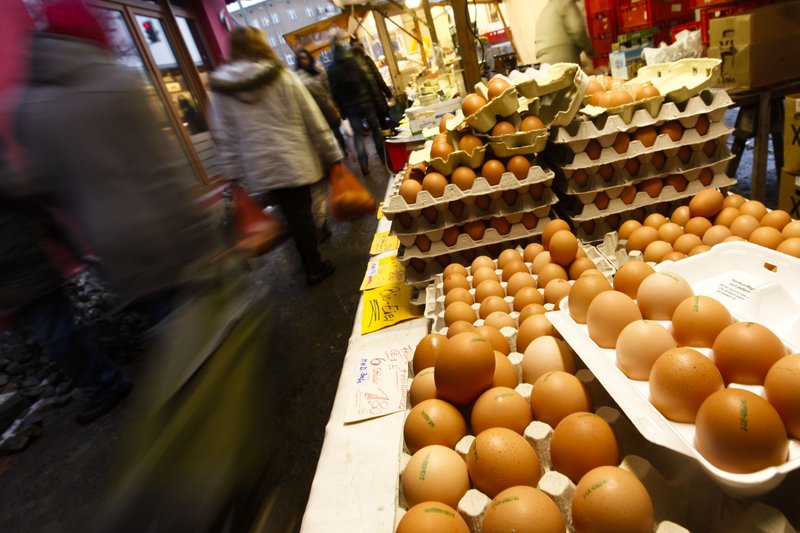BERLIN – Germany froze sales of poultry, pork and eggs from more than 4,700 farms Friday to stem the spread of food contaminated with cancer-causing dioxin, as fears grew that farmers could have been using tainted livestock feed for months.
South Korea and Slovakia on Friday banned the sale of some animal products imported from Germany, while authorities in Britain and the Netherlands were investigating whether food containing German eggs — such as mayonnaise or liquid egg products — was safe to eat.
Prosecutors in the northern state of Schleswig-Holstein launched an investigation into the German firm Harles & Jentzsch GmbH, suspecting the company knew but failed to tell authorities that fat it had produced for use in feed pellets was tainted with dioxin. The state agriculture ministry said it had information that the company had been producing tainted fat for months — a declaration that shocked federal officials.
“If it is confirmed that the company knew since March that its fat was tainted but it did not inform authorities, then that is highly criminal activity,” Agriculture Minister Ilse Aigner told n-tv television.
Test results published Friday by the Schleswig-Holstein agriculture ministry showed that some of the fat contained more than 77 times the approved amount of dioxin. Out of 30 samples tested so far, 18 contained more dioxin than legally allowed, it said.
Dioxins are contaminants that often result from industrial combustion and other chemical processes. Exposure to dioxins at high levels is linked to an increased incidence of cancer. Dioxin levels tend to be highest in eggs because of the high fat content in eggs.
Authorities believe up to 150,000 tons of feed pellets for poultry and swine may contain the contaminated industrial fat produced by Harles & Jentzsch.
Agriculture Ministry spokesman Holger Eichele said all of Germany’s 17 states were also carrying out tests on milk and meat as an extra precaution. According to the most recent tests on eggs from farms where chickens ate the contaminated feed, he said, “two-thirds have been clean and about one-third have been right on the border of what is considered dangerous.”
The scandal broke after regular random testing revealed excessive dioxin levels in eggs from chickens in western Germany earlier this week. More than 8,000 chickens were ordered slaughtered and tainted food fears spread to Germany’s famous pork industry.
Send questions/comments to the editors.



Success. Please wait for the page to reload. If the page does not reload within 5 seconds, please refresh the page.
Enter your email and password to access comments.
Hi, to comment on stories you must . This profile is in addition to your subscription and website login.
Already have a commenting profile? .
Invalid username/password.
Please check your email to confirm and complete your registration.
Only subscribers are eligible to post comments. Please subscribe or login first for digital access. Here’s why.
Use the form below to reset your password. When you've submitted your account email, we will send an email with a reset code.